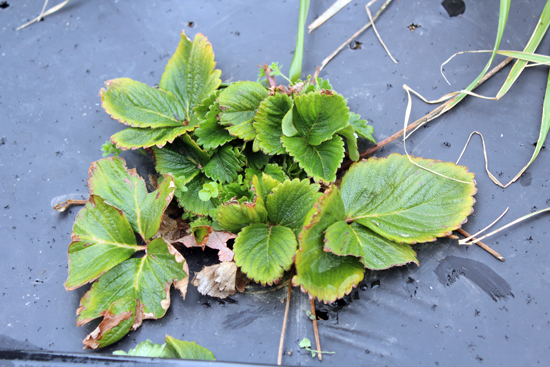Two strawberry viruses found in Kentucky
Two strawberry viruses found in Kentucky

Kentucky strawberry producers should check with their supplier on the origin of their plugs after two viruses were found this spring in the state, said Nicole Ward Gauthier, assistant professor in the University of Kentucky College of Agriculture’s Department of Plant Pathology.
The viruses, strawberry mottle virus and strawberry mild yellow edge virus, were found on plants that originated in a nursery in the Great Valley area of Nova Scotia. Three known Kentucky growers received a shipment of plants from this nursery, but only one of them has reported symptoms of the viruses.
“These are not new viruses, but the outbreak is so severe because plants from this area of Nova Scotia were distributed throughout the U.S.,” Gauthier said.
These viruses work together to reduce or eliminate yields. If the viruses are found, growers should plan for at least a 25 percent reduction in yields. While the viruses infect the plants, the fruit is still edible, and consumers should not notice a difference in taste or appearance.
Symptoms of the viruses include poor plant growth in spots or in entire fields, older leaves turning bright red, yellowing along plant edges or on emerging leaves and dead plant tissue along leaf margins.
Common aphids can transmit these viruses to healthy plants. Lambsquarter, a common weed, is also a host for the strawberry mottle virus. This alternate host can allow the virus to survive in fields from season to season. Lambsquarter infected with strawberry mottle virus may not show symptoms.
If growers suspect their plants are infected by either of these viruses, they should contact their county extension agent for confirmation. Gauthier encourages growers to destroy all symptomatic plants as soon as possible. If growers cannot destroy infected plants, they should carefully manage aphid vectors and implement a strict weed management program. Infected perennial strawberries should be removed at season’s end.
Extension Horticulture

